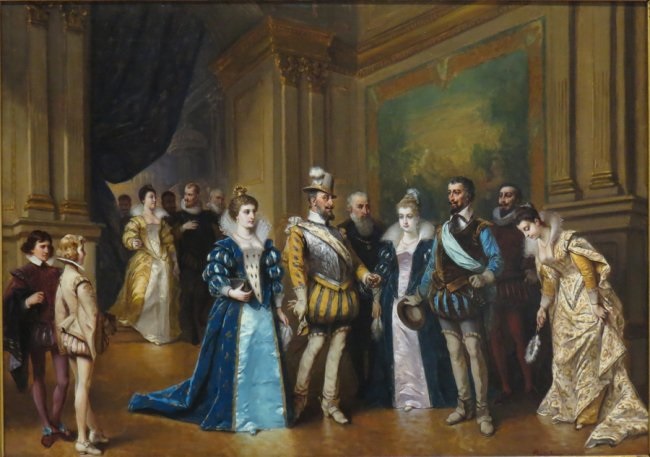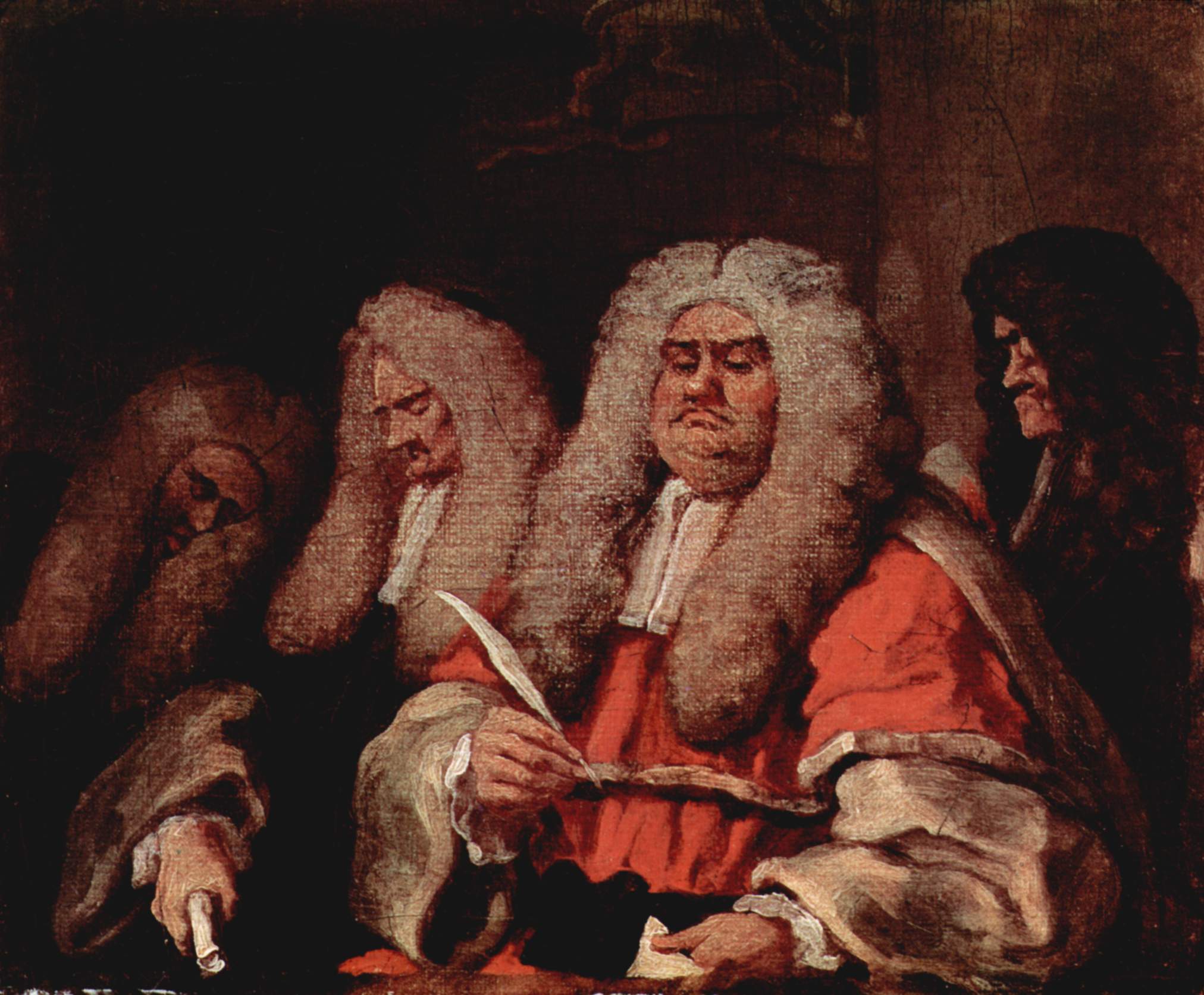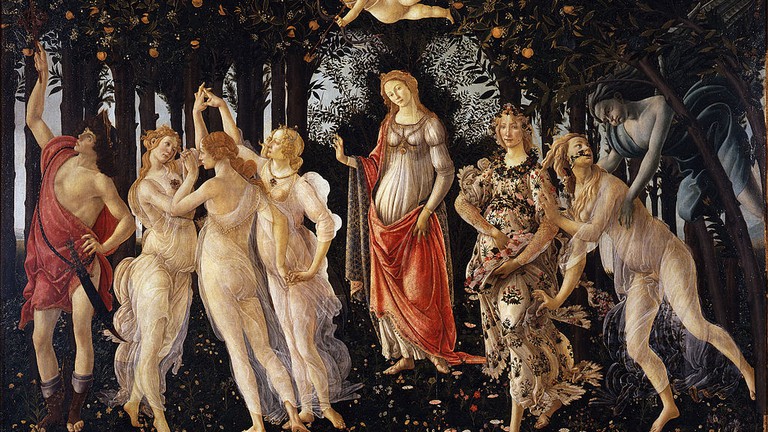Creating a Nation
 This is a very simple game about a Monarch and the advisers in their Court; in order to play, you'll need a pencil, some paper, an eraser and some coins with easily identifiable heads & tails sides. The first order of business is to appoint a Monarch who rules over the fictitious nation that the game is set in. The Monarch starts by defining a number of resources which will define the nation and how successful they are in ruling it: these might be very obvious things like population, gold, food and happiness, but they could be more esoteric qualities like magic, crystals, sunbeams and fortifications or whatever you like. Pick whatever you want to measure your nation by, so if you'd rather have a comedically dark & Gothic realm, your resources could be misery, hunger, rats and rain. The number of resources should be the same as the number of non-Monarch players, so in a 5 player game, there will be 1 Monarch who chooses 4 resources. All the resources you start the game with have an initial score of 2, but you cam make this whatever you like if you want to hack the game for a different tone or theme.
This is a very simple game about a Monarch and the advisers in their Court; in order to play, you'll need a pencil, some paper, an eraser and some coins with easily identifiable heads & tails sides. The first order of business is to appoint a Monarch who rules over the fictitious nation that the game is set in. The Monarch starts by defining a number of resources which will define the nation and how successful they are in ruling it: these might be very obvious things like population, gold, food and happiness, but they could be more esoteric qualities like magic, crystals, sunbeams and fortifications or whatever you like. Pick whatever you want to measure your nation by, so if you'd rather have a comedically dark & Gothic realm, your resources could be misery, hunger, rats and rain. The number of resources should be the same as the number of non-Monarch players, so in a 5 player game, there will be 1 Monarch who chooses 4 resources. All the resources you start the game with have an initial score of 2, but you cam make this whatever you like if you want to hack the game for a different tone or theme.
After the Monarch has recorded the nation's starting resources, they appoint all the other players as their Courtiers; the Monarch may either name a role and ask another player to fill it, or they may simple ask the other players what roles they have in mind for themselves. As with resources, select roles that reflect and support the theme of the nation; examples might be Major General of All Armies, Chief Tax Collector, Grand High Wizard, etc. Each Courtier takes a coin from the Monarch when their role is agreed; you are now ready to start play.
The Changing Seasons
Each round of play follows this format:
- The Monarch suggests a theme: this could simply be based on the season the nation is passing through, or something more specific such as "A Time of War" or "The Famine."
- Once the theme is set, the Monarch asks for news from the nation from each Courtier, in any order they please, but each Courtier should only be asked for their news once per round.
- When giving news to the Monarch, a Courtier has three options: they can ask the Monarch for Judgement, tell them of an Event or present them with an Opportunity.
- Once every Courtier has given their news, and all the results of that have been settled, the Monarch begins a new round with a new theme, incorporating whatever changes the nation has gone through into that as appropriate.
Judgement
After giving their news, the Courtier presents the Monarch with two choices and asks them to pick one; as they do so, they should take their coin and conceal it in their left or right hand. As they present the Monarch with their choices, they should indicate which hand corresponds to which choice, presenting both closed fists out to the Monarch, who indicates their choice by tapping one fist.
 When presenting a case for judgement, bear in mind that one of the choices you offer the Monarch will be bad and lead to a loss of resources, while the other will be good and create more resources. You don't have to be obvious about this, but nor should you attempt to be deliberately misleading. Once the Monarch has chosen, open the fist they tapped: if it has the coin, then their choice was wise and you should tell them to take +1 in one resource of your choice; if it doesn't have the coin, then the Monarch's choice was unwise and they must take -1 in one resource of your choice.
When presenting a case for judgement, bear in mind that one of the choices you offer the Monarch will be bad and lead to a loss of resources, while the other will be good and create more resources. You don't have to be obvious about this, but nor should you attempt to be deliberately misleading. Once the Monarch has chosen, open the fist they tapped: if it has the coin, then their choice was wise and you should tell them to take +1 in one resource of your choice; if it doesn't have the coin, then the Monarch's choice was unwise and they must take -1 in one resource of your choice.
For example, the Monarch asks their Chief Tax Collector for news, who responds by saying "It is not good, your Highness; the crops have failed in many parts of the nation, so many of our farms have produced under yield this season, so they have had less to pay their taxes with... your Majesty, should I send out armed guards with the tax collectors, to force the taxes out of the farmers? Or should I give them leave to pay double next year?" The Courtier presents first their left, then their right fist as they say this; the Monarch considers and taps the right, indicating that the taxes should be left until next year, hoping for a more prosperous time; the Courtier opens their fist but reveals no coin! They narrate that the nation's coffers are running low and apply a -1 penalty to the 'Gold' resource, which the Monarch adjusts accordingly.
Event
Giving news of an event is rather like presenting the Monarch with a choice to pass judgement on, but instead of letting the Monarch choose between two outcomes, the Courtier tosses a coin instead. Events are simply random occurrences that are outside the control normally exerted by the Monarch: they can be small things with big consequences, such as a marriage cementing the bond between two neighbouring nations, or wild, natural events, such as earthquakes, floods, fires and so on.
Events don't effect resources though; instead, they tag the nation or the Monarch themself with conditions: a condition is a word or short phrase that describes the situation, such as "Engaged to be married", "At war", "Favoured by the Gods" and so on. Along with this, you may note an effect on the game, e.g. perhaps the condition "Diseased" might have a note that says "Double population losses", so that each time the nation's 'Population' resource is reduced for any reason, then it actually reduces twice as much, e.g. -2 instead of -1. The outcome of the event is decided by a toss of the Courtier's coin: if it comes up heads, the outcome is good, but if it comes up tails, the outcome is bad.
For example, the Royal Intelligence Collector (or Chief Spy, if you like) reports that the neighbouring nations of Hapsbarr and Bohemica have broken off diplomatic relations with each other over a supposed insult at a recent state dinner, then tosses a coin. It comes up heads, so the Courtier asks the Monarch to record that the nation is now "Close ally of Hapsbarr" and benefits from double 'Culture', whenever there is a gain in that resource.
Opportunity
The final type of news is where the Monarch may benefit from a situation if they act quickly; the Courtier describes the opportunity and the Monarch decides whether to take it or not. Every opportunity has a cost and the Monarch will be required to give up 5 units of one resource. erase one condition from themself or the kingdom, or both if ridding themslves of an unwanted condition.
When the Monarch agrees to spend a beneficial condition, or 5 units of a single resource, then the Courtier will tell them what they get in return, in the form of a rare resource: this is a second tier resource that cannot be gained by normal means and represents something rare and incredible. As well as recording it on their sheet, the Courtier who brought this to their attention takes an additional coin. When a Courtier has multiple coins, they effect play in two ways:
- When the Monarch chooses an option during Judgement, the outcome is increased by 1 for every extra coin, e.g. if picking either option from a Courtier with 3 coins in total, the result will be either +3 or -3 to one resource, accordingly. This is before the gain or loss is doubled by any condition that apples to it.
- When the Monarch is told of an Event, they may dismiss the result of a coin toss, if the Courtier who brought them the news has multiple coins. When this is done, the Courtier loses that coin and tosses one of their remaining ones; the Monarch may keep demanding retries as long as the Courtier has coins to spare, but once that Courtier is down to their single last coin, no more retries are allowed.
Continued Play
 There's no endgame with this, you just play until you reach a satisfactory conclusion; this might mean getting every resource to 10, or getting one of them to 20, or collecting 5 rare resources: it's whatever ending you want it to have, when you want it to end. What follows are some suggestions for varying the rules for broader interest:
There's no endgame with this, you just play until you reach a satisfactory conclusion; this might mean getting every resource to 10, or getting one of them to 20, or collecting 5 rare resources: it's whatever ending you want it to have, when you want it to end. What follows are some suggestions for varying the rules for broader interest:
The Monarch is Dead, Long Live the Monarch: after every 2 or 3 rounds of play, depose the Monarch and appoint a new player to that role. Everyone else can change roles too, and the old Monarch becomes a Courtier, but the resources and conditions carry over into the reign of the new Monarch.
Councillors, Committees & Cabinets: rather than just playing in the set-up given above, why not change the premises to suit another setting? Think about playing as the crew of a generational starship, a circle of demons advising Lucifer on how to run hell, the Senior Staff and Arch-Chancellor of a magical university or any other setting your hearts desire.
Superiority: instead of a Monarch, trying having a Mayor... in a city of superheroes & villains! Not only will this create different issues to be dealt with, but some of the Courtiers (more like Councillors or Cabinet) can secretly be heroes! Every non-Monarch player can give themselves a positive condition and take an extra coin at the start of play. On their turn, their condition applies to any bonuses gained, but they can spend a coin on any other player's turn to have their condition take effect then also.












